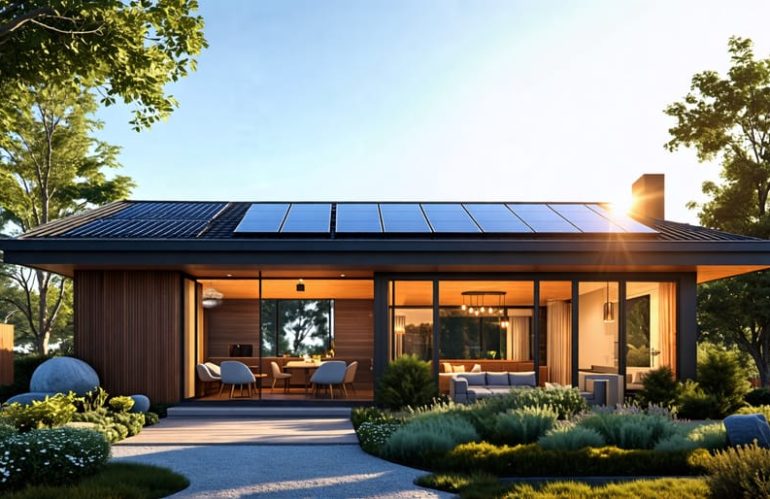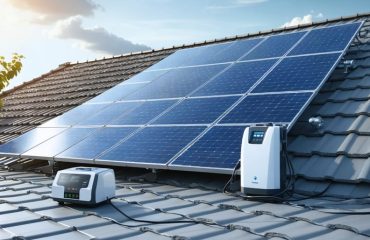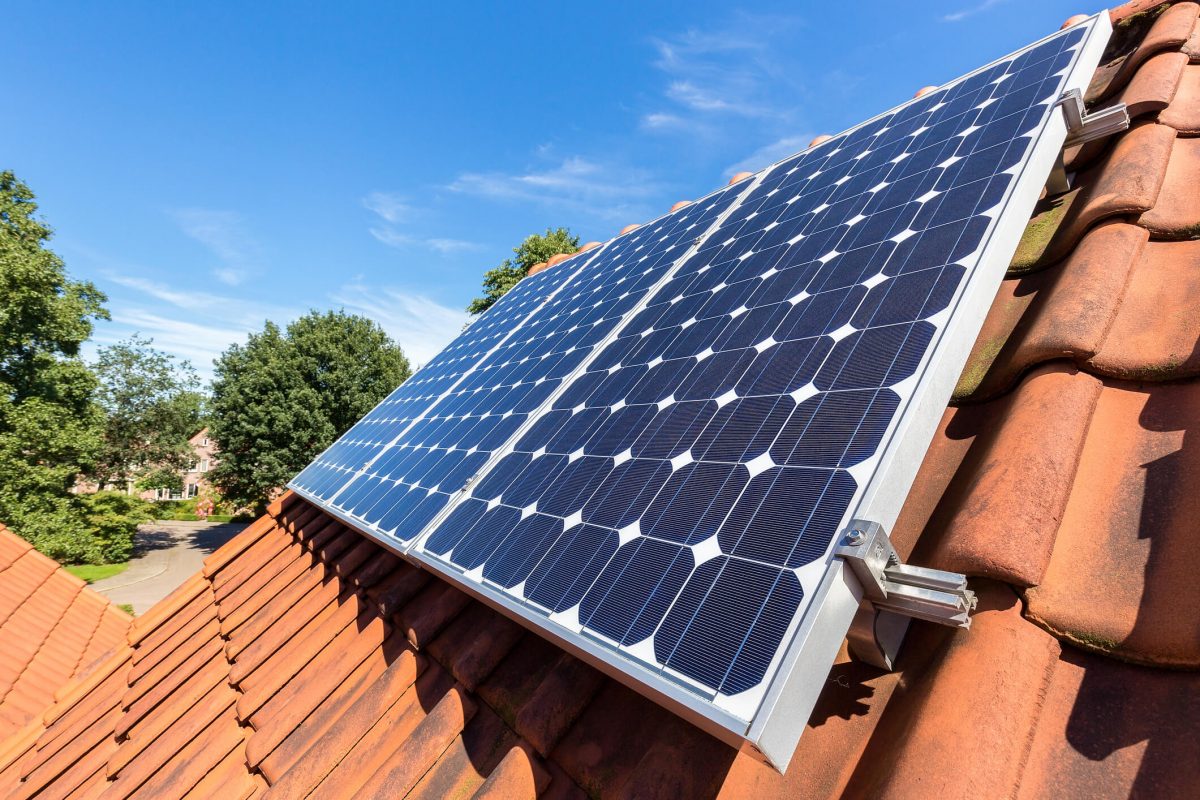Determine your home’s energy needs by assessing current electricity bills and considering future consumption trends. Note your roof’s orientation, size, and shading to gauge solar panel efficiency. Choose a reputable installer with proven experience in residential solar power systems to ensure quality installation and seamless integration. Explore available incentives and financing options, such as tax credits or leasing plans, to optimize financial benefits and enhance return on investment.
What is Solar Panel Integration?
Solar panel integration refers to the process of incorporating solar panels into a home’s existing power system to harness solar energy and reduce reliance on traditional electricity sources. At its core, integration involves mounting solar panels on rooftops or other suitable areas, where they capture sunlight and convert it into electricity through photovoltaic cells. This system usually includes an inverter to change the direct current (DC) generated by the panels into alternating current (AC), which powers most household appliances. Additionally, some setups feature battery storage to save excess energy for use during cloudy days or at night.
For homeowners, integrating solar panels offers numerous benefits. Not only does it significantly cut down electricity bills, but it also increases property value and reduces carbon footprint, contributing to a more sustainable lifestyle. Many people worry that adopting solar technology is overly technical or too expensive, but advances in technology and various financial incentives have made it more accessible and affordable than ever. Embracing solar energy is a smart move towards a greener future, offering personal savings and environmental impact reduction. By dispelling myths and recognizing the practicality of solar panel integration, more individuals can confidently transition to sustainable living.
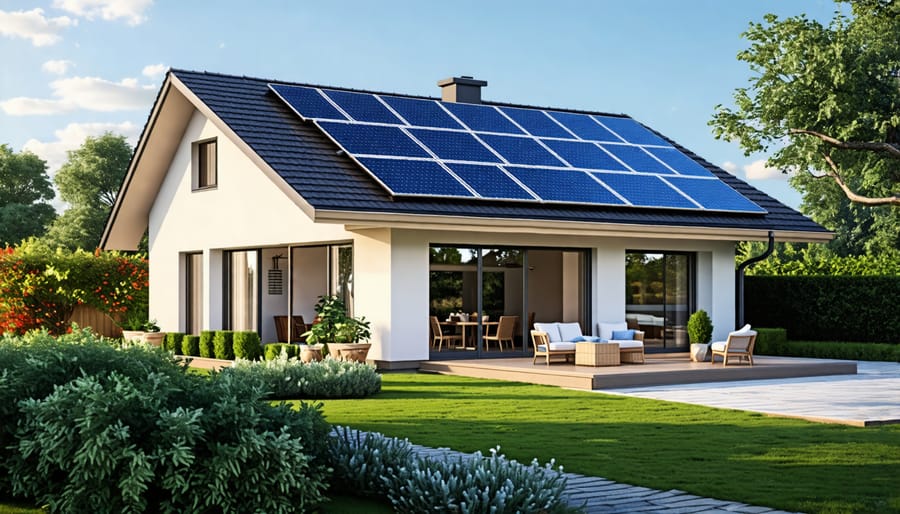
Benefits of Solar Panel Integration for Homeowners
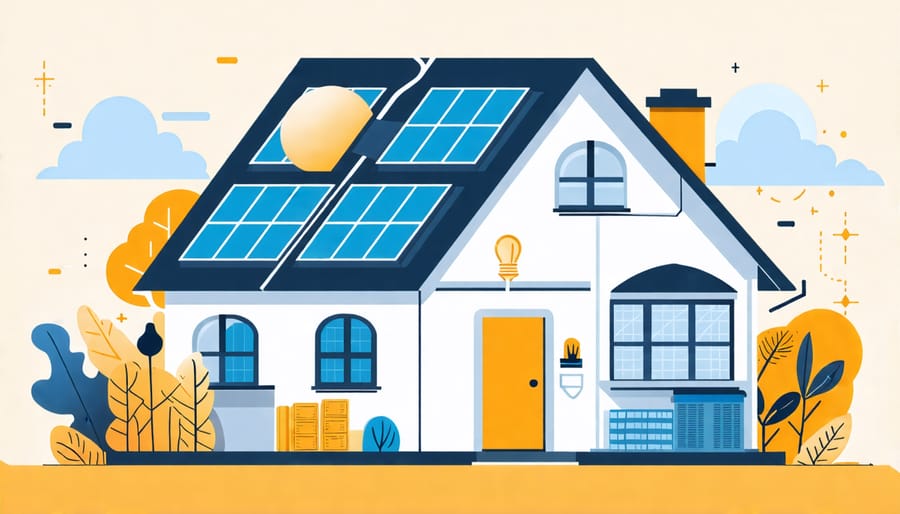
Financial Savings
Integrating solar panels into your home can significantly reduce energy bills, making it a smart investment for homeowners seeking long-term savings. By generating your own electricity, you minimize reliance on traditional power sources, which can lead to substantial monthly reductions in utility costs. Over time, the savings on these bills can outweigh the initial installation expenses, offering financial freedom from ever-rising energy prices. Additionally, many regions provide tax incentives and rebates that further enhance your solar savings. Overall, choosing solar not only promotes sustainability but also makes sound economic sense, contributing to a more budget-friendly household.
Environmental Impact
Solar panel integration offers significant environmental benefits by harnessing clean, renewable energy from the sun, which reduces reliance on fossil fuels. This shift directly decreases harmful greenhouse gas emissions, contributing to cleaner air and a healthier planet. Solar energy systems can enhance the sustainability of homes, making them a more eco-friendly choice. Furthermore, integrating solar panels helps conserve natural resources and minimizes the carbon footprint, proving beneficial for future generations. By adopting solar technology, homeowners not only contribute to environmental preservation but also enjoy long-term financial savings through reduced energy bills, creating a win-win for both the planet and their wallets.
Enhancing Home Value
Integrating solar panels into your home not only contributes to sustainable living but also significantly enhances property value. Homes with solar panels are increasingly attractive to potential buyers, as they promise reduced electricity bills and a lower carbon footprint. Studies show that homes with solar panel systems sell faster and at higher prices than those without. This growing interest in renewable energy translates into a strong return on investment for homeowners. Moreover, with the potential to save thousands on energy costs over the years, solar panels offer both immediate and long-term financial benefits, making your property a more enticing prospect in the real estate market.
Overcoming Common Solar Panel Myths
Many homeowners are intrigued by the idea of solar energy but hesitate due to lingering myths. One common misconception is that solar panels don’t work well in cloudy or cold climates. In reality, solar panels can still generate electricity on cloudy days and are even effective in cooler temperatures. Think of Germany, a country with less sun than many places, yet a leader in solar energy use.
Another myth is that solar panels are prohibitively expensive. While the initial investment might seem significant, the long-term savings on electricity bills are substantial. Many homeowners find that panels pay for themselves in just a few years, thanks to reduced utility bills and incentives such as tax credits.
Some also believe solar panels require constant maintenance. On the contrary, they are designed to be highly durable and, with no moving parts, need minimal upkeep. Occasional cleaning and routine inspections are usually all that’s necessary to keep them operating efficiently.
Finally, there’s the myth that solar installation is complex and disruptive. Modern systems can often be installed in a matter of days with minimal disturbance to your daily life. Plus, many companies handle all the paperwork and permits, making the transition smoother than one might expect.
By dispelling these myths, homeowners can better appreciate solar energy’s potential benefits—not just for reducing energy costs but also for contributing to a more sustainable future. With accurate information, the move to solar becomes an exciting and viable option for almost any household looking to embrace green living.
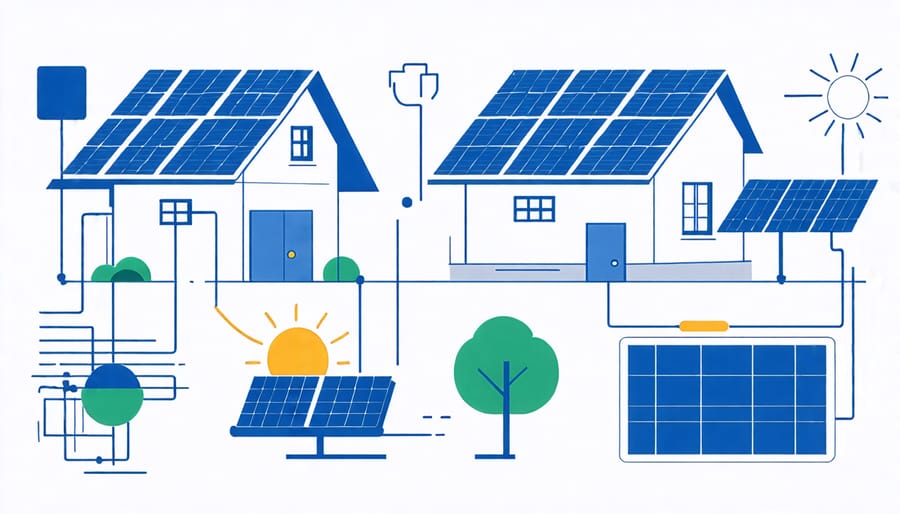
Key Considerations for Integrating Solar Panels
Site Assessment and Suitability
When considering solar panel integration, assessing your site’s suitability is key to maximizing efficiency and savings. Begin by evaluating the amount of sunlight your property receives throughout the year. Southern-facing roofs with minimal shade from trees or nearby structures are ideal. Consider the roof’s condition and angle, which can influence energy production. Even if your roof isn’t perfect, ground-mounted systems or solar trackers might be viable alternatives. Understanding local weather patterns is also crucial, as more sunlight directly translates to greater energy generation. By identifying these factors, you’ll be better equipped to harness solar power’s full potential, ensuring environmental benefits and financial savings.
System Size and Energy Goals
Determining the right size for your solar panel system starts with understanding your household’s energy consumption. Begin by reviewing your electricity bills to gauge your monthly and annual usage. Consider your energy goals: do you want to completely offset your electricity costs, or are you aiming to reduce them partially? A typical homeowner can meet most of their needs with a 5-10 kilowatt system, but size will vary based on individual consumption and location. Consulting with a solar professional can help tailor a system to match your specific needs, ensuring both optimal performance and financial savings.
Budget and Incentives
Investing in solar panels is an economically savvy decision thanks to a variety of budget-friendly incentives. Many governments offer financial rewards such as tax credits, rebates, and grants to make solar energy more affordable. These incentives can significantly lower the initial solar panels and installation cost, reducing the burden on homeowners. Some utility companies also provide financial rebates to encourage the switch to solar energy. By taking advantage of these programs, you not only contribute to a more sustainable future but also enjoy substantial long-term savings on energy bills.
Getting Started with Solar Panel Integration
Embarking on your solar journey can be an exciting step towards sustainability and saving on energy bills. Here’s how to get started. First, assess your current energy needs and roof’s suitability. Consider factors like roof size, angle, and shading, which can impact a solar system’s efficiency. Consulting with a professional for a detailed evaluation is a good move here.
Next, research local incentives and rebates. Many regions offer financial benefits for solar installation, which can significantly reduce your initial costs. Investigating federal tax credits can also be worthwhile for additional savings.
When selecting a solar installer, choose a reputable company with a solid track record. Look for certifications and ask for recommendations from friends or neighbors who have already made the switch. This step ensures you receive quality service and peace of mind.
Financing options are plentiful; you can purchase outright, lease, or opt for a solar loan. Each option comes with its pros and cons, so consider what aligns best with your financial situation and long-term goals.
Lastly, it’s a common myth that solar requires constant sunlight. Panels can still generate electricity on cloudy days, making them feasible year-round. By integrating solar panels into your home, you’re not only investing in a greener future but also reducing your dependency on traditional energy sources, ultimately cutting down your monthly expenses.
Conclusion: Embracing a Sustainable Future
Embracing solar panel integration is a powerful step toward a sustainable future, offering both environmental and personal benefits. By harnessing the sun’s energy, homeowners can significantly reduce their monthly energy bills and decrease their carbon footprint. This shift not only supports a thriving planet but also provides substantial savings over time. Many misconceptions about solar panels exist, yet technological advancements make them more efficient and affordable than ever. As awareness grows, integrating solar energy becomes a smart choice for those committed to sustainability. By choosing solar, you contribute to positive change and pave the way for a cleaner, greener world.

